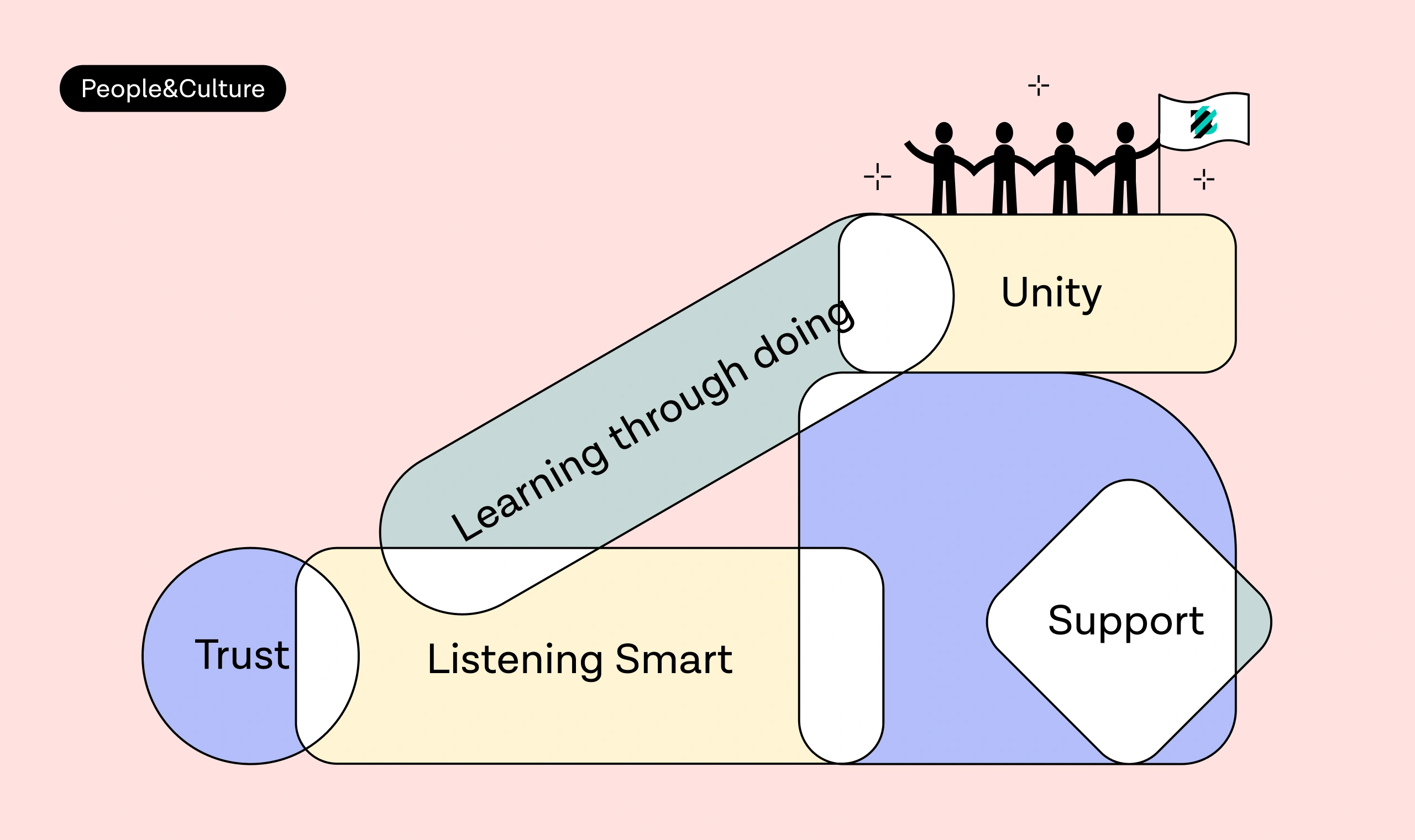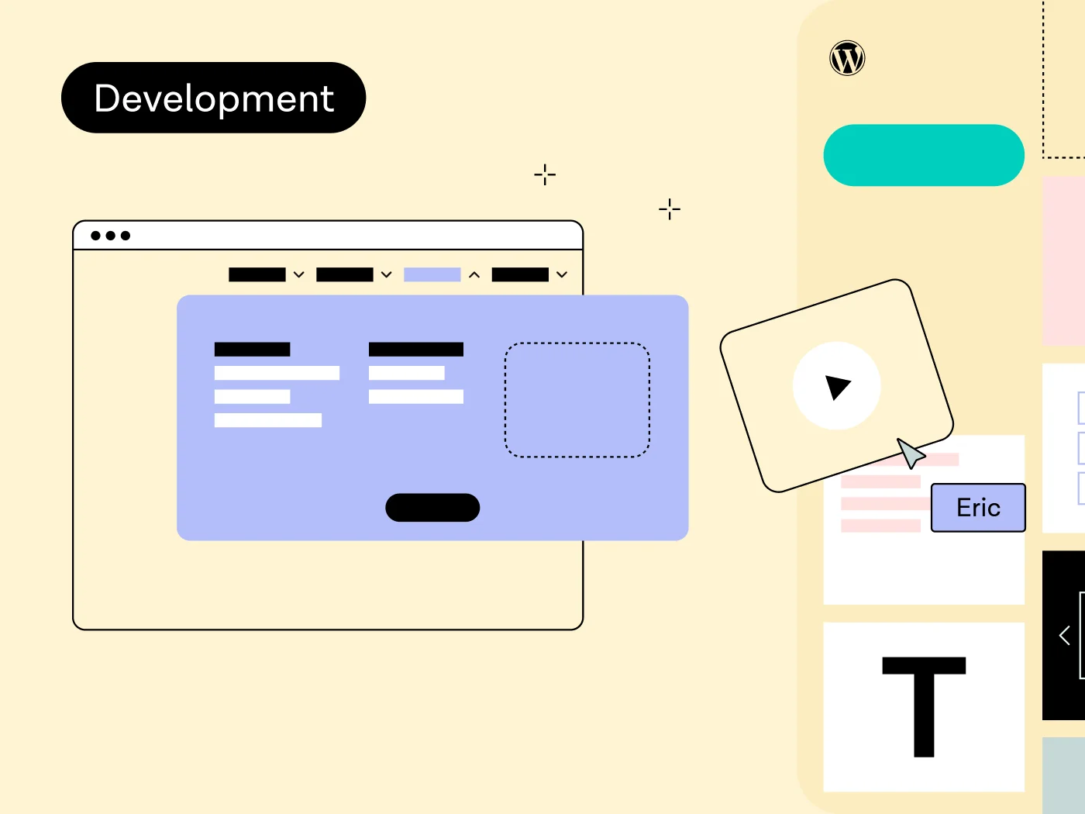Uncovering challenges: A roadmap to growth
I’m sure there are many managers out there who can relate to the challenge I kept facing at the start of my career: despite my best efforts to identify the root causes of my colleagues’ issues and offer relevant advice, I often found my suggestions overlooked. It was discouraging, and at times, even frustrating. But, this experience taught me a valuable lesson about the human nature of learning and growth—more often than not, it stems from personal experience and learning from one’s own mistakes.
That’s why I changed the focus of my career, and instead of just handing out advice, I began to focus on coaching. My role evolved to guide individuals towards discovering their solutions and insights. By asking probing questions, I encouraged them to view their challenges from new angles, effectively empowering them to chart their path to personal and professional growth.
When I joined BB, where ‘learning through doing’ and ‘listening smart’ are some of the foundational values, it became clear to me that building a culture through coaching would be the most effective approach. It wasn’t solely about providing individual coaching to managers, co-founders, team leads, and project managers but also about uniting them in group coaching sessions. This collective approach illuminated a universal truth: regardless of one’s experience or background, we all encounter similar challenges and navigate them in our unique ways.
Facilitating these shared experiences not only fosters deeper connections among colleagues but also enriches the team with diverse insights and, most importantly, builds trust. In other words, sharing perspectives can be a powerful tool for organizational growth and cohesion.
Lessons learned: Addressing critical pain points
On our coaching journey, we’ve identified certain critical pain points and key takeaways that I believe will resonate with many other teams and individuals, mirroring their own experiences.
Imposter syndrome
Imposter syndrome is a common psychological phenomenon where individuals doubt their accomplishments and worry about being exposed as frauds, even when there’s clear evidence of their competence. Through our individual coaching sessions, we foster self-awareness, highlight each individual’s unique skills and qualifications, and demystify the set of beliefs that led them to feel this way in the first place.
Additionally, addressing this issue in group sessions helps everyone realize that it’s a common struggle people deal with. This collective understanding creates a supportive environment where individuals feel at ease. In turn, we empower each other to overcome imposter syndrome, allowing everyone to step into their professional roles with authenticity and confidence.
The art of giving/receiving feedback and psychological safety
In the context of remote work, the dynamic between feedback and psychological safety is incredibly significant. Constructive feedback serves as the bedrock for nurturing psychological safety, fostering open communication, trust, and a culture of continuous improvement. When team members feel at ease expressing their thoughts and ideas, feedback becomes a powerful tool for aligning expectations, addressing challenges, and bringing the best solutions and ideas to the table.
Establishing an environment where feedback is not just accepted but genuinely valued contributes significantly to the overall well-being of remote employees. This approach encourages them to take risks, share insights, and actively engage in their professional development. That’s precisely why coaching everyone to recognize the power of providing proper and frequent feedback swiftly elevates the level of psychological safety and trust across all levels.
Delegation, prioritization
Since we strongly believe in cultivating our own top performers to become team leads, many of our team members are first-time managers. Unlocking the potential of effective delegation and prioritization is crucial for them to develop into effective leaders. Through coaching, we aim to explore various other perspectives on these skills, particularly those of the team members they manage.
Delegation empowers team members by entrusting them with responsibilities, fostering skill development, and promoting team synergy. A leader who delegates effectively cultivates a culture of trust, boosts morale, and optimizes productivity. On the flip side, micromanagement stifles creativity, hampers individual growth, and often leads to frustration and disengagement among team members.
Prioritization is equally crucial, helping managers allocate resources wisely and focus on tasks with the greatest impact. It ensures that energy and time are dedicated to activities aligned with organizational goals, preventing burnout, and enhancing overall efficiency.
Proactive mindset and engagement
Through coaching, everyone becomes aware of their power to shape and steer our culture. Our managers and team leads learn that anticipating and addressing challenges unique to remote collaboration and engagement navigates them efficiently and inspires other team members to adopt a similar problem-solving attitude. When leaders serve as role models in a remote setting, the multiplier effect comes into play as their behaviors and work ethic set the standard for the entire team. Observing and internalizing these qualities, team members are more likely to mirror them, creating a collective culture of proactivity, adaptability, and engagement.
Success stories: Testimonials speak louder
Here are some thoughts on our coaching sessions from our team members:
Vedran, Project Manager:
Each topic is relatable to everyone involved, meaning there’s no way you will not engage in group coaching sessions as we’ve all been through these types of situations. I can confirm that the team finds these sessions very useful and has gone so far that we all chip in with potential ideas on how to expand it from one session to the next.
Vicente, Brand Design Team Lead:
They provide a safe and nurturing space where we can discuss the challenges we face as managers and look for possible solutions. As someone who might have initially been skeptical of these sessions, I quickly found them to be extremely valuable and have gained great insights into my day-to-day interactions with my own team.
Anna, Product Design Team Lead:
From day one this was a gulp of fresh water for my colleagues and me to come openly and speak about issues, blockers, and different controversial situations we are facing every day. Coaching sessions are a great environment for us where we can discuss different aspects of leading roles and how to manage them effectively.
Katarina, Project Management Team Lead:
To me personally, coaching sessions give great value, because I either learn about completely new terms and topics or gain new perspectives on existing situations. We are engaged in group discussions, with a constant focus on finding solutions.
Conclusion: Nurturing success at BB through coaching
In our experience at BB, coaching has become a cornerstone for cultivating a positive culture. We moved from simply advising to facilitating personal growth, understanding that the most effective learning comes through firsthand experience. Our core values of ‘learning through doing’ and ‘listening smart’ have informed our approach to coaching, highlighting the importance of collaboration and trust.
In conclusion, coaching is more than a process; it’s a catalyst for authentic leadership and collective growth. Leaders who exemplify how to tackle effectively any issue and struggle they might have, serve as drivers of the change they want to see in other team members. By embodying the desired behaviors in a remote environment, leaders create a blueprint for a productive and healthy remote work culture. This not only fosters a sense of unity among remote team members but also establishes a foundation for sustained success in a virtual environment.





